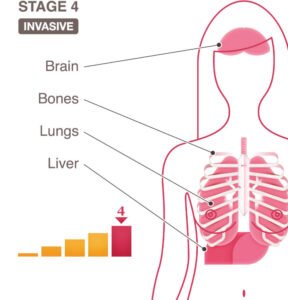Over Half of Americans Are In Favor of Vaccine Passports
Over Half of Americans Support Vaccine Passports: A Look Into Public Opinion
Read Time: 6 mins
The debate surrounding vaccine passports has gained momentum, with over half of Americans in favor of this concept as a means of verifying COVID-19 vaccination status. As the country approaches a return to normalcy, the question of how to ensure public safety while resuming regular activities has led to a surge in support for this digital verification method.
Public Opinion on Vaccine Passports
A recent survey reveals that 55% of Americans believe it is necessary to prove vaccination status, while 28% oppose the idea of vaccine verification. About 17% of respondents remain uncertain about their stance. This data, collected from 2,000 individuals, highlights a growing trend towards acceptance as COVID-19 vaccines become more widely distributed.
The Case for Digital Verification
While traditional vaccine cards have been issued to those vaccinated, they are prone to being lost or damaged. Digital vaccine passports, stored on smartphones or other electronic devices, could offer a more secure and accessible solution. Some private sector companies are already developing digital platforms that can store and verify vaccination records, simplifying access for travelers or patrons entering venues.
For those without smartphones, written certification may be provided as an alternative. The implementation of vaccine passports would digitize this content, making it easier for individuals to carry proof of vaccination when needed.
Who Supports Vaccine Passports?
Support for vaccine verification often correlates with vaccination status, with vaccinated individuals showing a higher likelihood of backing the idea. Democrats, millennials, and men are more likely to favor vaccine passports, while Gen Z—typically more hesitant to get vaccinated—seem less supportive of the initiative. Public opinion remains divided, but there is a clear trend among vaccinated populations to support digital verification measures.
Vaccine Passports and Privacy Concerns
Despite the growing acceptance of vaccine passports, concerns remain about privacy and access to technology. Some critics argue that requiring proof of vaccination could disadvantage individuals who lack easy access to smartphones or who are cautious about receiving the vaccine. Additionally, ensuring the security of personal medical data within digital systems will be crucial to maintaining public trust.
A Patchwork of State Policies
The introduction of vaccine passports is likely to vary by state. Some states, like Arizona, Florida, and Texas, have taken measures to block the implementation of such programs, citing concerns over individual freedoms. In contrast, states like New York and Hawaii are moving forward with digital verification systems. Schools, workplaces, and certain venues are also exploring ways to incorporate vaccination verification into their policies.
Global Context of Vaccine Verification
Vaccine verification is not a new concept. Countries have long required proof of vaccination for diseases like yellow fever, and many schools and workplaces already mandate certain vaccinations. The idea of verifying COVID-19 vaccinations as a condition for entry into various settings is a natural extension of these existing practices.
The Future of Vaccine Passports in the U.S.
As the U.S. continues to roll out vaccines and approaches herd immunity, the role of vaccine passports will likely become clearer. While the Biden administration has ruled out a federal mandate for vaccination verification, it is expected that a patchwork of state-level systems will emerge, offering varying degrees of enforcement and application.
Methodology
This data comes from the biweekly Verywell Vaccine Sentiment Tracker, a survey of American attitudes towards COVID-19 vaccines. The study uses a sample size of 2,000 respondents and includes a diverse representation of age, gender, race, ethnicity, and location.
Key Takeaways:
-
More than half of Americans support vaccine passports, especially those who have been vaccinated.
-
Digital verification systems could streamline proof of vaccination, although privacy concerns remain.
-
The acceptance of vaccine passports varies by state, with some embracing the concept while others resist it.
-
Vaccine verification is part of a larger global effort to manage public health, building on established practices for other diseases.



